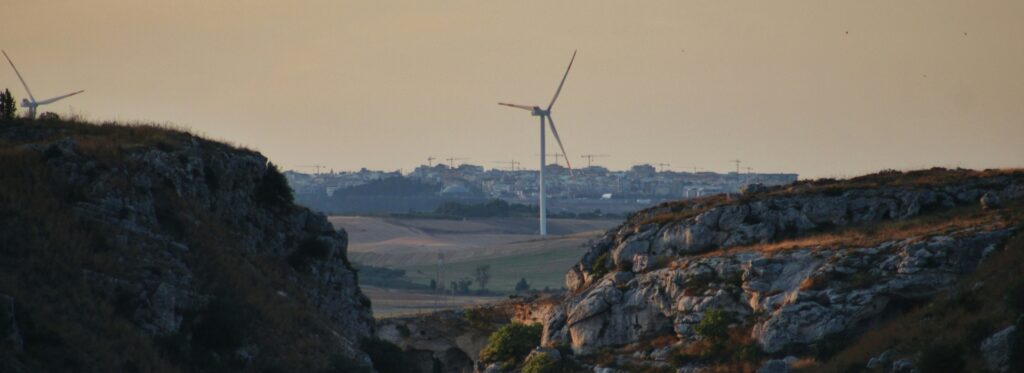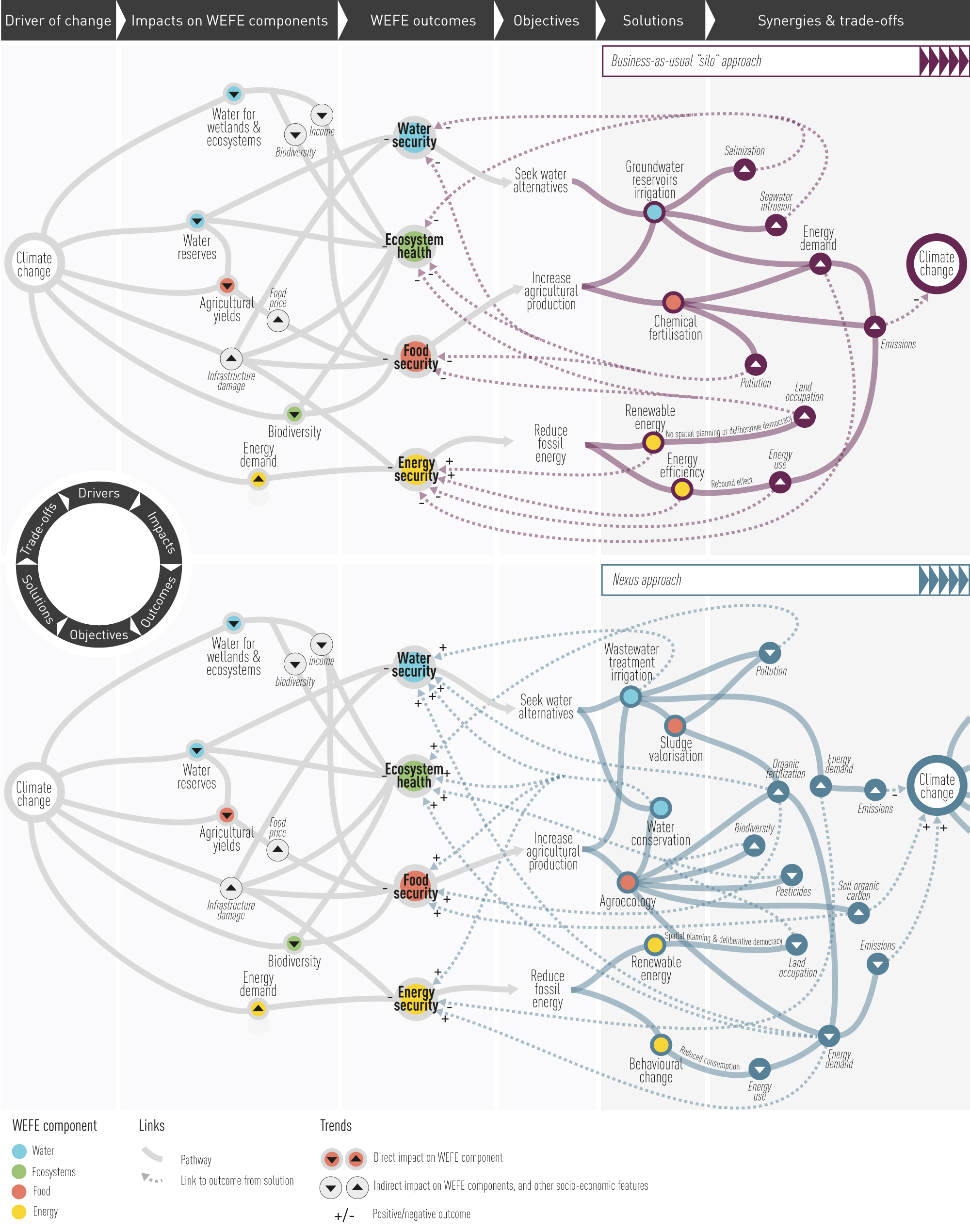Rising temperatures, shifting rainfall patterns, droughts… Climate and environmental changes are putting unprecedented pressure on natural resources. Water availability is decreasing, energy demand is rising, food systems are under stress, and ecosystems are rapidly degrading. The Mediterranean is no exception: as a climate change hotspot, these pressures are intensified, highlighting the strong interconnections between them.
This Special Report brings together the expertise of 60 volunteer scientists from 15 countries, combining insights from over 1 000 publications and more than 1 500 review comments contributed by researchers across 23 countries.
It provides a comprehensive assessment of the relationships between the 4 pillars – Water, Energy, Food, and Ecosystems (WEFE) – advancing the discussion in the First Assessment Report (MAR1), and offers decision-makers data-driven insights, including a nexus approach with adaptation and mitigation strategies to ensure the sustainable management of natural resources and its alignment with the SDGs.

In the report:
Chapter 1 – Introduction: WEFE nexus concept in the Mediterranean area
Outlining the concept of WEFE nexus from sectorial to systemic thinking.
Chapter 2 – Drivers of change and their impacts on WEFE in the Mediterranean region
Assessing the complexity of drivers of change and analysing the cascading effects on every pillar (Water, Energy, Food, and Ecosystems).
Chapter 3 – WEFE nexus in support of adaptation and mitigation
Addressing WEFE nexus adaptation and mitigation strategies in the Mediterranean, covering technological, ecosystem, and social options.
Chapter 4 – Contributions of WEFE nexus to sustainability
Exploring how the WEFE nexus contributes to sustainability in the Mediterranean region, focusing on challenges, solutions, methodologies, indicators, and the management of synergies and trade-offs among resources.
Chapter 5 – Governance, policies and research options for the WEFE nexus
Discussing governance, policies, and research options for the WEFE nexus, examining actors, tools, gaps, and levers to enhance coordination and integrated action.

Key takeways:
5 years from the 2030 Agenda and its SDGs, Mediterranean countries still face major sustainability challenges. Vulnerabilities on WEFE elements has made insecurity being the rule rather than the exception, with large disparities between countries.
From a silo to a nexus approach
Addressing these issues requires moving away from silo approaches, as isolated solutions are no longer effective against problems that are so deelply interconnected.
The WEFE nexus approach is a key concept for a more resilient adaptation to the climate crisis in the Mediterranean region.
Example:
Agricultural production is impacted by water scarcity, heat stress, as well as agricultural land loss due to coastal flooding, abandonment and soil salinization. Irrigation demand is projected to increase by 4% to 18% by 2100.
Under a 2°C warning scenario, the frequency of agricultural droughts is projected to be 150 to 200% more in the South.
Focusing on a single societal goal and one WEFE element can result in negative trade-offs, leading to maladaptation.
Cascading effects of a silo approach:
Chemical fertilisation creates pollution, affecting ecosystems, food and water security.
A nexus approach shows differents effects, with synergies benefiting to all or multiple WEFE components.
Cascading effects of a nexus approach:
Agroecology, instead of chemical fertilisation, results in organic fertilisation and less pesticides, benefiting the water and ecosystems components.

Adaptation and mitigation solutions
Building on the cascading effects observed in silo and nexus approaches, a range of adaptation and mitigation measures can address the interconnected challenges across the WEFE components.
- Ecosystem-based solutions:
Agroecology and Nature-based Solutions (NbS), green infrastructure, wetlands restoration… - Social approaches:
Modification of consumption patterns, sufficiency, Mediterranean diet… - Technological solutions:
Renewable energy and enhanced efficiency solar energy for water pumping…
A concept-to-implementation gap
While research and policy initiatives confirm the relevance of the WEFE nexus for building resilience, concrete examples of its implementation remain limited, primarily due to gaps in data and governance.
- The lack of complete, disaggregated, and high-quality data limits the data-driven WEFE nexus approach
- Many measures reflect silo governance, due to insufficient understanding of nexus trade-offs and synergies, higher costs of nexus approach at short term, and lack in inter-sectoral and multi-level coordination.
Available:
Full Report – English
Summary for Policymakers – English, French, Spanish
